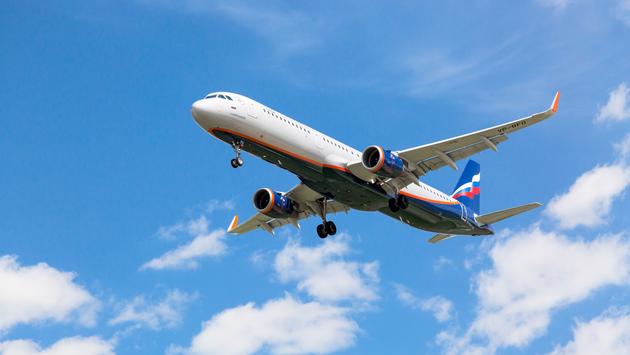Russian airlines are refusing to return 400 leased jets from foreign companies

Russia’s airlines are refusing to return 400 planes they’d leased from foreign companies; the planes are worth billions.
Early last month, an employee of Sri Lanka’s court system walked into the nation’s biggest airport brandishing a judicial order grounding an Aeroflot flight that was about to take off for Moscow.
The aircraft’s nearly 200 passengers were deplaned and taken to local hotels, their travel foiled by an Irish company that had leased the jet to Aeroflot and was now demanding its return to comply with Western sanctions on Russia.
The incident kicked off a diplomatic row on the tropical island south of India, which is heavily dependent on Russia for tourist income and, of late, for fuel. First, Aeroflot halted all flights to the island, blocking the flow of leisure travelers. Then, in private talks, according to a European official familiar with what took place, Moscow threatened to cut off energy deliveries as well — something that would have worsened an economic crisis that was already causing food and fuel shortages and widespread unrest.
Within days, the court, acting after a request from the government, issued a new ruling clearing the jet to fly, and it left for Russia, where it now flies regularly between Moscow and Kyrgyzstan.
For Sri Lanka, the battle over the Irish-owned airliner was just a blip in a long string of developments that last week led to chaos as protesters stormed the homes of the president and prime minister, forcing them to promise to resign and the president to flee the country. But for Russia, it was a victory in a hard fought campaign against a four-month Western sanctions campaign, demonstrating the lengths Moscow is willing to go to defend its economy, particularly in vulnerable nations where it has leverage.
There are signs that the sanctions are starting to bite. Russian government statistics show that auto production plummeted by 96.7 percent in May compared with a year ago, threatening a sector that employs 600,000. Economists say that reflects a broad collapse in manufacturing as foreign-owned factories close and domestic ones struggle to import Western components.
Hundreds of foreign companies have ceased operations in Russia, inflation is running at 16 percent and the country’s gross domestic product will contract by 8.5 percent this year, the International Monetary Fund predicts. Economists say Russia’s long-term prospects remain dire. “The potential for the decline is far from exhausted,” Sergey Aleksashenko, a former top official in Russia’s Finance Ministry and central bank, who now lives in the United States, wrote June 30 in a newsletter.
But some factors continue working in Russia’s favor, including lucrative oil and gas exports that fund the military and social safety net. Russia earned about 93 billion euros — roughly $93 billion, or $1 billion a day — in revenue from fossil fuel exports in the first 100 days of the war, according to the Centre for Research on Energy and Clean Air, a nonprofit in Finland.
And Moscow is fighting hard where it can to blunt the sanctions’ impact. Aviation is one of those sectors.
To date, Russian airlines are refusing to return more than 400 planes and a slew of aircraft parts that they leased from Western companies, forcing the leasing companies to file $10 billion in insurance claims, according to data and research provider Cirium.
More at: https://www.washingtonpost.com/business/2022/07/12/russia-aircraft-seizure-sri-lanka/
